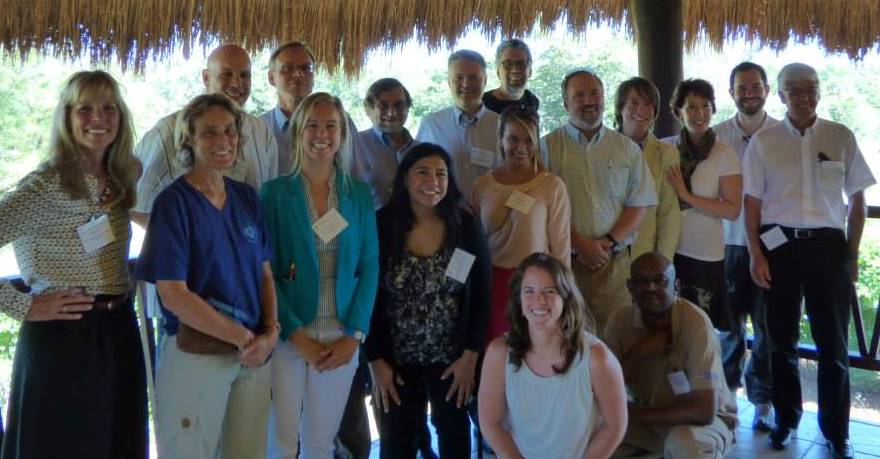Industry professionals gather in one of the most important annual conferences in Sustainable Tourism

Beginning April 25, Bonito experienced the arrival of over 400 visitors coming to attend the 2014 Ecotourism and Sustainable Tourism Conference (ESTC), the annual conference in sustainability management for those with a shared vision of responsible tourism development. World-wide industry professionals, Brazilian government authorities, tourism destination representatives and international NGO leaders will gather over an abundant array of meetings, workshops, presentations, field sessions, clinics, etc. through April 30.
Within this framework, the Global Sustainable Tourism Council held its Annual General Meeting (AGM) on April 25 and 26. « Sustainability is not a niche, Sustainability is not a segment, Sustainability is the future of our industry » expressed Dr Kelly Bricker, GSTC Board Chair, during the inaugural speech.
Members, staff, Early Adopter representatives, and other attendants, they all witnessed the process of how some destinations have committed to adopting sustainable practices through tested criteria; The Okavango Delta (Botswana), Lake Llanquihue (Chile), Riviera Maya (Mexico) and Sierra Gorda Biosphere (Mexico) organizations showcased their remarkable efforts by becoming Early Adopter’s of the GSTC Criteria for Destinations (GSTC-D). The « GSTC Criteria are -simply said- guidelines on how to be more sustainable. They can be used in many different ways, ranging from simply putting them into practice without telling anyone to the gold standard of having an independent certification verify that we are actually complying them”, explained Amos Bien, GSTC Technical Director and an expert in the field of the sustainable tourism and standardization.
Early Adopter representatives shared their insights about tourism planning, economic development, community involvement, heritage protection, and environmental conservation. Further, they revealed how their destinations have made considerable progress on some significant sustainability issues and introduced the challenges they currently face. « For a paradise forever, it has to be for everyone », claimed Beatrice Barreal, Director of Sustainable Riviera Maya while she described their slogan paradise is forever -, « as there are no private paradises » she added while exposing the barriers that the organization has to encounter to ensure a long term tourism model that benefits Riviera Maya stakeholders.
Richard Malesu, Environment & Safety Coordinator at Botswana Tourism Organization, told the audience the difficulties that they deal with “finding balance betweeen community and farming” in an effort to ensure sustain natural and cultural integrity in the pristine Okavango delta.
Similarly, Jorge Moller, representative of Chile explained how the Lake Llanquihue DMO faces “competition with farmers about what to do with its beatiful landscapes” as there are complex and contradicting interests over management of Chile’s beautiful northern patagonian land.
Throughtout this fruitfull 2-day event, the level of the discussion was always profound with participants respectfully expressing their passion with heated topics and diversed views that turn into long moderate and productive arguments.
GSTC’s new CEO, Randy Durband reported: “We had a small but expert and passionate group of participants at our AGM here in the heart of the South American continent. We’ll do our best to share our take-aways from our discussions with all of our GSTC members in the coming weeks and hope that those communications foster more debate and understanding within the GSTC community.”
While the AGM just concluded, the ESTC agenda continues through Wednesday.
Have a hot topic for us to cover? Connect with us on Facebook, follow us on Twitter and join our group on LinkedIn to share your thoughts.
About the Author
Jimena Moses is a Senior Travel Consultant with a Master’s degree in Sustainable Tourism and a passion for responsible travel. She is the Co Chair of Communications and Strategy Committee at the Global Sustainable Tourism Council.
Connect with her via Email at info@gstcouncil.org and on Twitter @GSTC_




